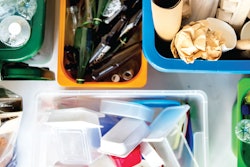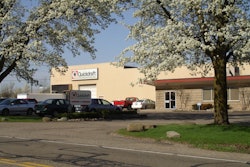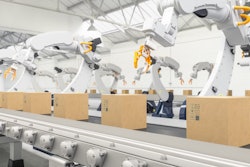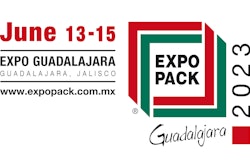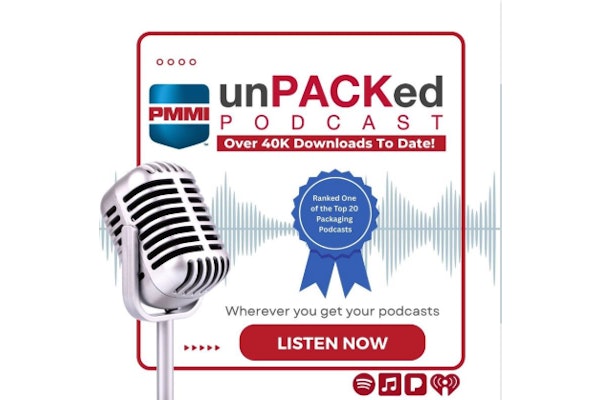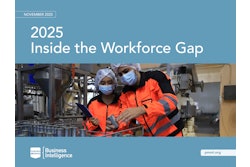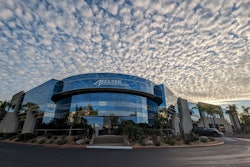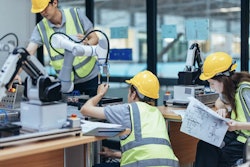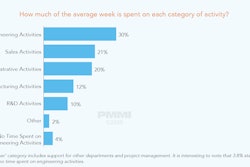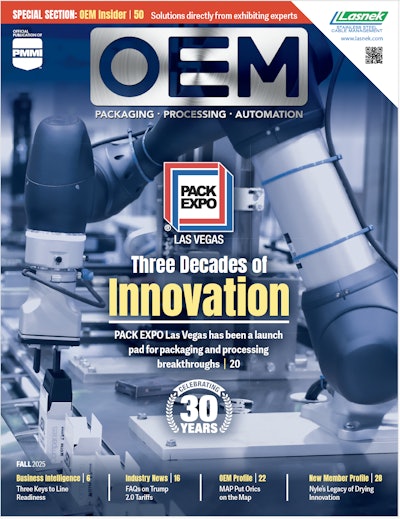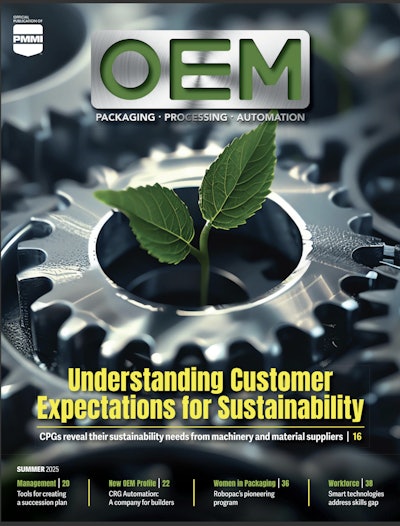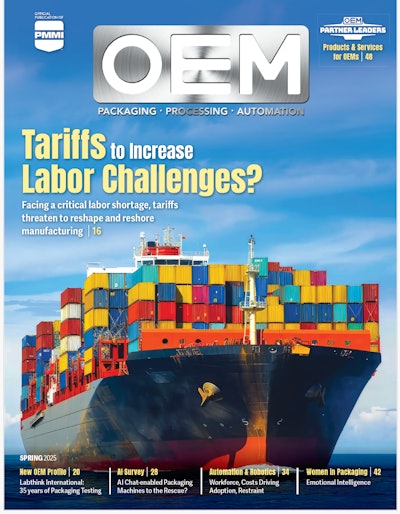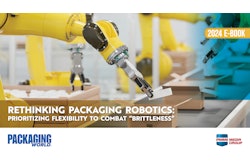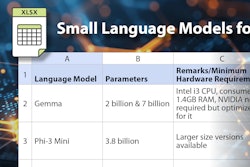For its 100th episode, unPACKed spoke about workforce initiatives with Pat Finlay, who serves as R&D Sr. Director of Global Beverages Packaging for one of the world's largest and most recognizable brands: PepsiCo. It would be a dereliction of duty to let a guest from a high-profile company like that leave without prodding Finlay on PepsiCo’s current sustainability initiatives. Large companies will ultimately drive real change, so let’s hear what the biggest food and beverage company in the U.S. is currently working on regarding sustainability.
To subscribe, rate, review, and find more unPACKED podcast episodes, visit pmmi.org/podcast or find us on Apple Podcasts, Spotify, iHeart Radio or wherever you listen to your podcasts.
 | Read the full transcript below.
|
Sean Riley:
Yeah, absolutely. That's wonderful to hear. I have one more question before we wrap up because I can hear, again, I would catch a lot of flak from people if I had somebody from a huge company like PepsiCo on here and didn't ask them some more packaging-industry-directed questions. The only thing I really touch on is I know you're in the packaging realm, sustainability's always the biggest thing. I guess if you could just talk about what PepsiCo is doing around sustainability from the packaging end, just so I can feed the Jones of some of our packaging listeners.
Pat Finlay:
Sure. Yes, sustainability has become a major force within the organization and obviously within the global world economy as we're looking at how do we drive better sustainability of packaging around the world. Plastics in particular has got a very negative wrap and a lot of negative visibility that comes with it for a material at the end of the day, which is a really high-quality material that does a great job of doing what it's supposed to do and what it's designed to do.
With that said, we recognize that we want to minimize the amount of packaging that we've got around the world and the amount of plastics that we've got around the world, so we have a lot of activities around driving rPET incorporation, bringing 100% rPET bottles. I think we have 100% rPET bottles now in 23 markets around the world, so we're driving reuse of materials. How do we bring those recycled materials back into high-quality beverage packaging and bottles? Driving recycling rates. If you look around the world, there's a vast discrepancy on the recycling rates in different parts of the world. How do we make sure that we're getting high-quality recycled material back so that we can bring it into our packaging and the high quality finished good that ultimately ends up in the hands of consumer?
I'm a firm believer that packaging and plastics in and of itself is a good thing, but if it's not handled correctly after you're finished using it, that's where it becomes an issue, so how do we make sure that the post-use lifecycle of the packaging and the plastics that we're using has value to it that ultimately end of the day drives recycling and gets it reused? We've done a lot of things around lightweighting our packaging over the years. If you look back 20 years ago, a 20-ounce bottle would've been about 24, 25 grams. Now, it's 21. We're always looking at how do we drive lighter-weight packaging and reducing the amount of material that we're using in our packages.
Then also, there's a lot of work around things like bio-based PETs. How do we look at plant-based materials, material alternatives to petroleum that'll give us a more environmentally-friendly plastic at the end of the day? Not new to the world. It's been done for about 10 years, but how do we start to drive that onto a bigger scale? We have a lot of work around RCBR, which is recyclable, compostable, biodegradable, or reusable. Reusable for us is starting to elevate. We're seeing a lot of buzz around the industry around reusable, things like SodaStream, where we're looking at a base package that gets used over and over and over and over again, minimizes the amount of packaging that we have in the system. It minimizes the greenhouse gas components that we're looking at as we look at what is the impact of packaging on greenhouse gas. There's activities in all four of those areas to help drive better-for-the-environment packaging at the end of the day.
Sean Riley:
Those are all fantastic and exactly the type of things that I was hoping to hear because again, sustainability, it started as a buzzword and then it started becoming more of a thing. Then younger generation has gotten older and into the workforce and into the people having a lot of the purchasing power. It has been something that they've really been wanting to incorporate in their purchases. They like companies that are invested in the environment and being sustainable and some of the things you talked about, mainly the difficulty.
Especially you as a plastics guy, but you know on your end that plastics, for all the negative attention it gets, is a material that, I always think of this example, but when there's disasters and stuff like that, that bottled water is what comes in and saves people's lives. Plastic is something that is a necessity that we need to use and it is something that we can recycle. But the bigger problem is we need to fix the recycling part of it, that MRF end of it and that end of it where we can dispose of it properly and have the stuff recycled properly. I guess it takes the Pepsis drive that, if that makes sense. Is that something that's fair to say, the bigger companies have to be the ones that are going to make those changes, force those changes to happen? Is that fair to say, Pat?
Pat Finlay:
Yeah, absolutely. Absolutely. We have a number of people that engage pretty consistently with regulatory bodies and different governments around the world to help drive recyclability and help drive how markets are going to work with recycled materials. The example I'll use is China. China does not currently allow PET to be used in a bottle from a recycled point of view. We have provided information to the regulatory bodies in China to help them understand what recycled PET is all about, the quality of the recycled PET, the cleanliness of the recycled PET, and the safety of recycled PET, so we do have engagement at that type of level. It's not just we design a bottle and we go produce it and make it. We have a lot of areas that we have our fingers in.
I say "we" as PepsiCo, but it is industry-driven. We are not alone. We know that our big competitors are also looking at sustainability and they're also looking at working within the kind of regulations that we have to work in and it's for everybody's benefit to help drive those capabilities and understandings where markets don't have the approvals today to do RPET, how do we help them get a comfort level so that we can use something like rPET?
Sean Riley:
That's awesome. That's what I was getting at is that it seems like the only thing, without naming all your competitors and stuff like that, that will make a lot of these things happen is it has to come from the top and at the top is the PepsiCo and the other big multinational companies that are trying to initiate these changes. But again, at the end of the day, it has to be accepted by the different countries and accepted by the consumer mainly that they're going to dispose of things properly and they're going to be willing to recycle the way they're supposed to. These are wonderful things to hear that are happening.
I took you a little longer than we said we were going to have you on for, Pat, but I really appreciate you taking time out of your day to come on here and break down a lot of the things that PepsiCo's doing out there in the world, so thank you very much for coming on the pod.
Pat Finlay:
My pleasure, Sean Riley. I'm glad to do it


